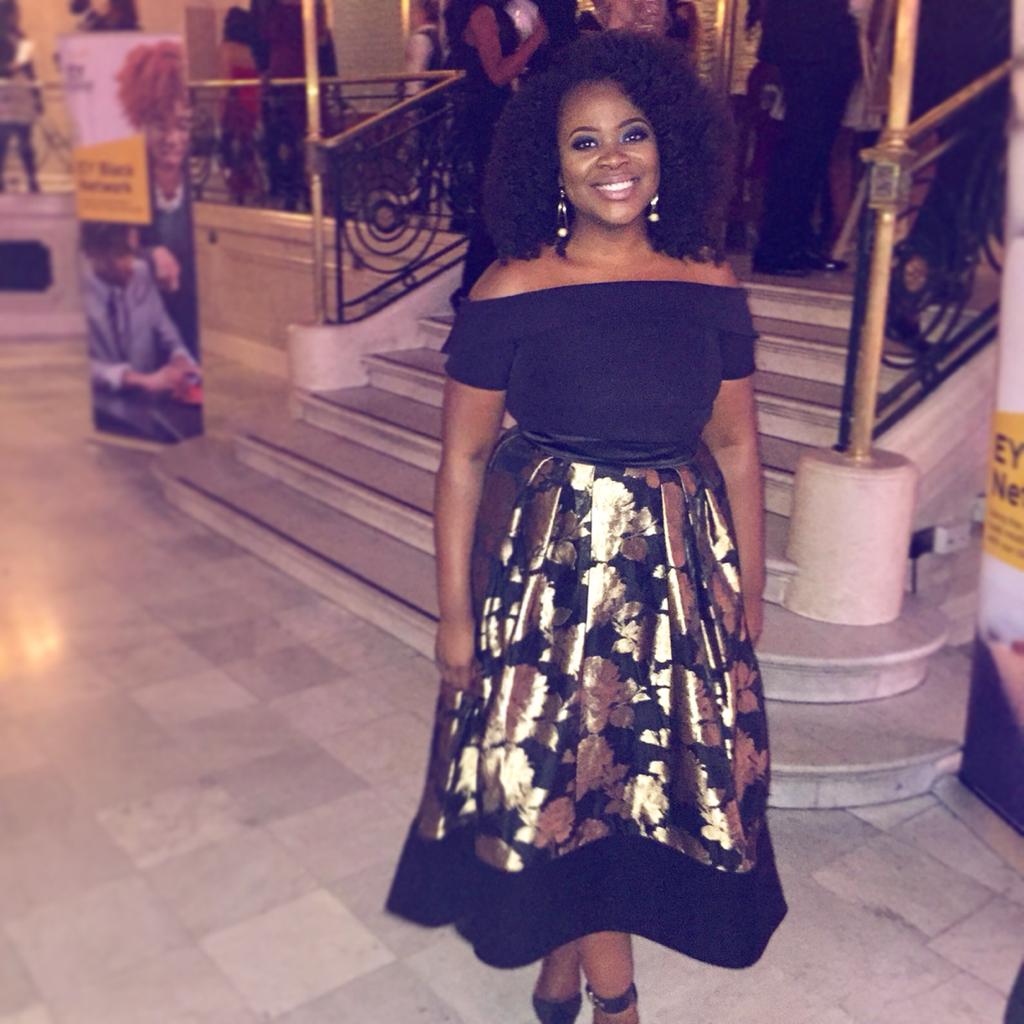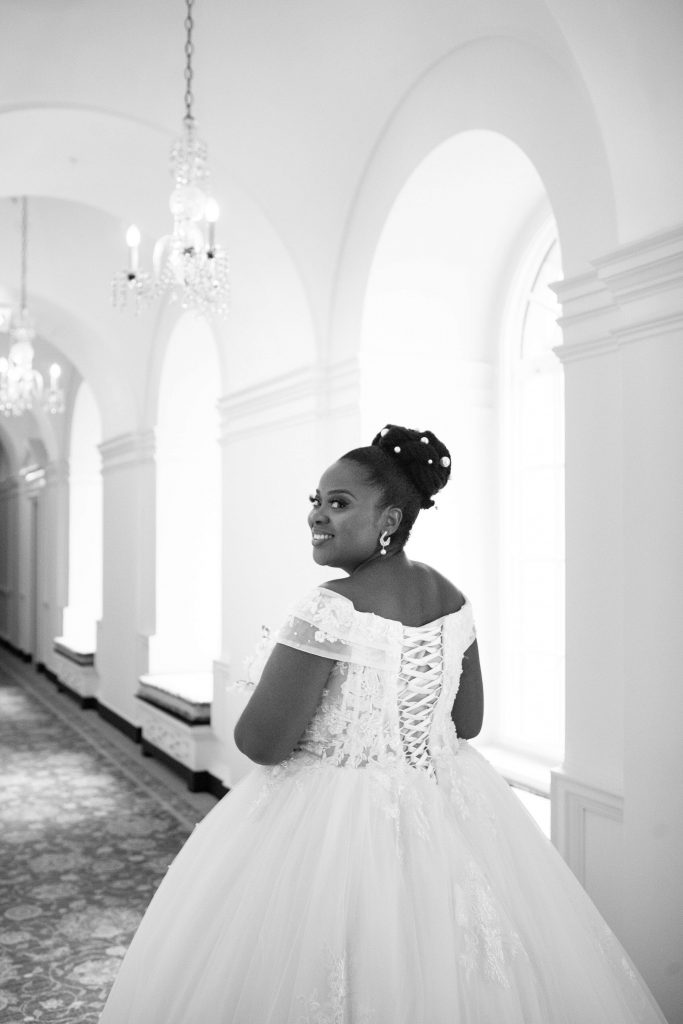Looking back at how my body has changed over the past 15 years, I realized that I already had all the things I was waiting to be ‘thin enough’ for.
The Black Atlantic is our newest column for nuanced, human stories about the Black experience around the world. Send your story.
Lagos, Nigeria
Superman, my favourite superhero growing up, is 6’3” and weighs 225 pounds. His animated body is the absolute epitome of White strength, chivalry, and ‘masculinity’.
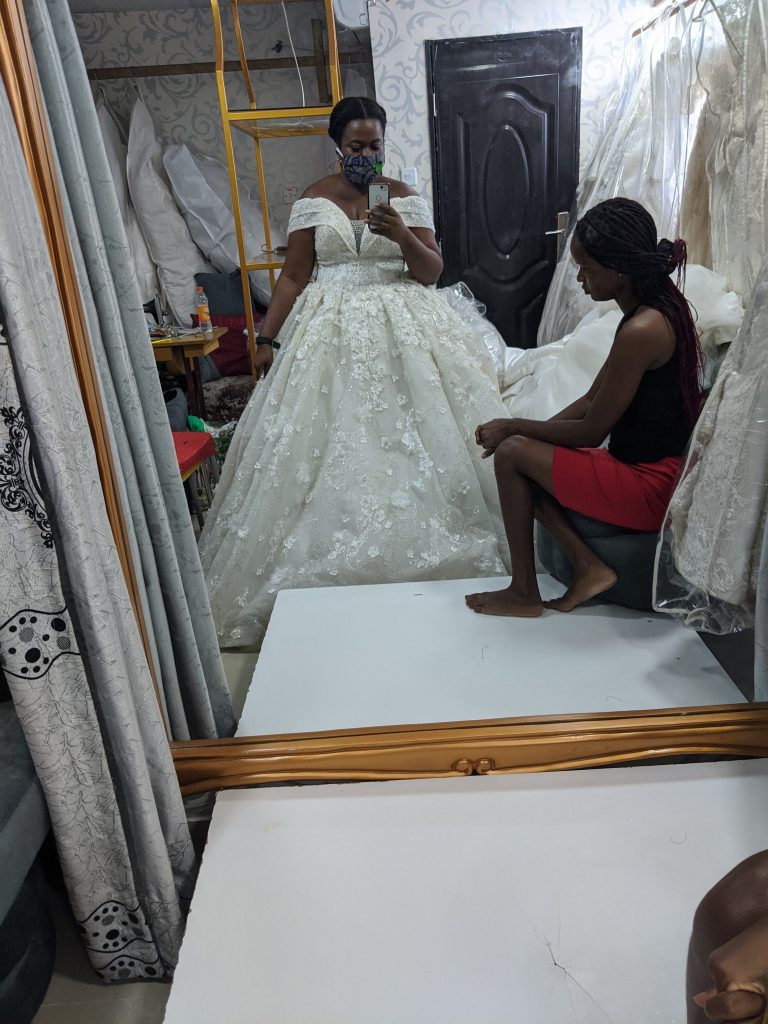
August 2020, 5’5” and over 210 pounds (almost as heavy as Superman, but not as tall). Oreoluwa in August 2020 during her wedding dress shopping at La Charis in Lekki Phase 1.
‘Princess dresses aren’t for fat girls’, I scoffed at the sparkly, poufy monstrosity the eager wedding dress shop assistant held out to me. I had put off wedding dress shopping to the last possible moment for two reasons. Firstly, wedding dresses did not appeal to me in the same way that they seemed to appeal to other women I knew. I had never dreamed of trying on a wedding dress of any kind—especially not a Cinderella-style dress—and I had limited enthusiasm for dress shopping itself.
Secondly and more practically, I had thought leaving dress shopping to the last minute would give me extra time to shift some of my ‘lockdown weight’ before choosing a dress. I was still hopeful that the surge in COVID cases would drop, and all my family and friends would be there to see me, thinner and lighter, tie the knot in person. I wanted to look and feel my best, potentially in something less conventional like Toni Braxton’s 2019 AMA performance dress. I glanced back at the princess dress draped over the assistant’s slender, shaky arm and tried to imagine myself in it. I imagined my body stuffed into the bodice, brimming over like a scoop of chocolate ice cream about to dribble over the edge of its soggy white cup on a hot afternoon.
Grimacing slightly, I turned back to the mirror and took in my reflection. I stood upright in my selection, a simple, elegant lace, and beaded mermaid dress. A Lagos dressmaker had already declared Toni Braxton’s dress ‘unsuitable’ based on my picture and measurements, but this dress had the same mermaid cut. The silhouette was almost perfect; it accentuated my almost ‘figure-eight’ shape, my not quite ‘Coca-Cola’ body. The dress almost fit perfectly. I looked back at the assistant’s choice again and she jumped in. ‘No ma’, she urged, ‘these dresses look very nice on your shape, it’s not just for very slim women. Please ma, just try it and you will like it.’ I did the math. My current choice would look great if I could lose 15 to 20 pounds. I’d need to lose at least 100 pounds to look good in her suggestion. I am 5’5”, bottom heavy, with big thighs, big arms, and a chunky middle, although my waist is small(er). These dresses were not designed for me, or with me in mind. I didn’t want to be the fat Black girl in the puffy princess dress. Those dresses were for the small, delicate, and dainty frames of skinny white girls. I had Lagos market-woman arms. They were dimpled with cellulite and flabby, and I didn’t want to flaunt them. In my more conservative choice, with my arms covered, I would look okay—as long as I could lose those 15 to 20 pounds.
Last week I went shopping for a dress to wear to a ball at the end of the month. I had found a dress, but I wanted another option. After trying and failing to fit into various dresses of different sizes and styles, I crumpled to the floor in a corner of the fitting room cubicle and sobbed silently into my green lumberjack shirt. When I was done, I took a deep breath, gathered my things, and went home empty-handed.
The snippet above is from an email I sent to my friend in 2017. I was living in London at the time and had been struggling with hip pain that seemed to be getting worse. I couldn’t work out as much as I had in previous years, or at all for the most part. Exercise had always been my way of keeping my weight down, and now that it wasn’t an option, I felt like I was spiralling. I had been gaining weight steadily for about two years and was hyper aware of this every time I was in a shop fitting room. Fitting rooms became hostile environments: the unforgiving harsh lighting that illuminated every extra pound, the frustration I felt from the zips of my dresses almost going up before they too gave up and went back down; having to repeatedly pop my head out of my changing cubicle to request a larger size—announcing my enormousness to the world one shop at a time—and the inevitable disappointment when the next size up still didn’t fit.
I found the snippet in my inbox recently, while going through old emails and shared it on social media. My inbox was immediately flooded by women in the same sinking ship, saddled with years of self-hatred, insecurity, frustration at the lack of inclusion of Black bodies in retail wear, and the widely held belief that weight loss was the solution. Re-reading that email now, I remember being angry at whatever shop I was in, being angry at the designers, and being angry at myself. If I had been 15 to 20 pounds lighter, I would have found something to wear. I had found so many dresses I liked, but none of them were for fat girls. I had never considered myself stylish, but I was convinced that even this sentiment was because of my weight. Finding fashionable clothes for a body that insisted on expanding felt like an impossible task. I often defaulted to styles and cuts I no longer liked and squeezed myself into the clothes that I could stretch into submission. When I eventually found a decent option, I was often crestfallen because it didn’t cinch in my waist as much as I wanted.
My body also felt too big by comparison. I was bigger than most of the people I worked with and in my friendship group. In addition to being conventionally attractive and smaller, my closest colleagues happened to be more personable and outgoing in the office and I sometimes felt like the ‘ugly fat friend’. Being bigger made me feel out of place and in situations where I was treated differently, I assumed it was due to my appearance—a feeling that resonates with a lot of bigger Black girls. This probably wasn’t true as my colleagues never explicitly did anything to make me feel this way, and I find myself questioning why it would have mattered either way.
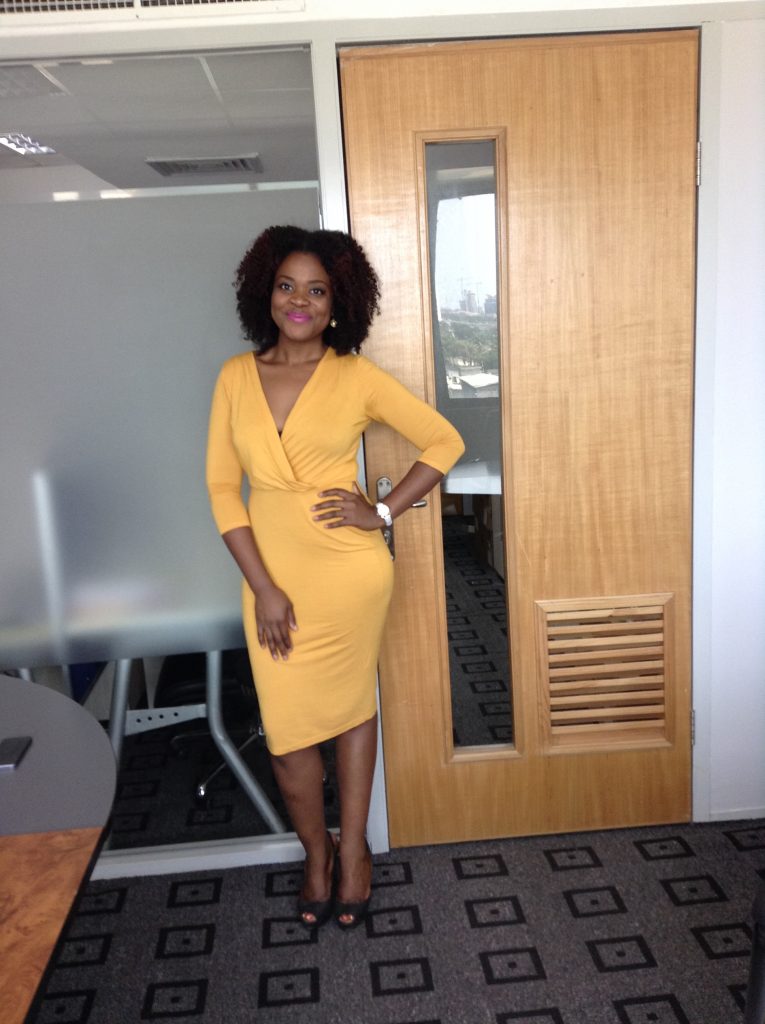
September 2014, 5’55” and 25 pounds lighter. Oreoluwa in a yellow dress during a summer internship in Lagos.
While living in Nigeria in 2014, I fell ill with typhoid and malaria. I was so sick that I had to be admitted to the hospital, and the doctor told me I could have died. I knew I was ill for almost two weeks before I agreed to see a doctor, but I also knew I was losing weight, so I held off on medical intervention. I had lost about ten pounds by the time my mum took me to the hospital herself, and I was worried that the IV drip I was given would set me back. I was too weak to eat, but even when my appetite did slowly return, I held off on eating, or deliberately chose foods that would set my stomach off again. I rationalized that this wasn’t disordered eating because I wasn’t making myself sick, and I wasn’t technically starving myself. This was control over my body. This was practical weight management. I was already ten pounds lighter, take off another five pounds and I would hit my target. If I could lose another five pounds, then I could push myself to lose another ten to 15 pounds after that.
When I posted my first full body picture after I recovered, so many people commented and complimented my new figure. Each comment confirmed that I was inching closer to the ideal body and each compliment made me feel powerful and in control. I saw clear differences when I walked past the mirror in my room; my stomach was flatter, my collarbones more pronounced. One of my friends came to visit me when I was discharged and jokingly asked me to spread the germs so that she too could get sick and lose weight. I felt smaller and it felt great, but still 15 pounds heavier than I ought to be. At least now, finally, perfection was almost within reach.

Sometime in 2004, 5’55” and 15 pounds lighter. Oreoluwa at a school history trip to WWI battlefields in France and Belgium.
I had finally grown out of my ‘chubby’ phase. I was 14 years old, and in Fourth Form at a boarding school in southwest Wales, where I was the only Black person for most of my time there. I always felt bigger than my peers, although I was pretty average in terms of size. If my friends were a UK size 8-10 on average, then I was a size 10. What is interesting, though, is that I was heavier than almost everyone else and very aware of it. We played different sports five to six times a week and ate healthy meals with a good combination of fruit and vegetables daily. We also had regular height and weight checks to monitor our BMIs, and one of our nurses told me—at 5’5” and 140 pounds—I was ‘a little overweight’ and would benefit from losing about one stone (roughly 14 pounds). Even before I was actually big, I already felt I was still other and still bigger. I was probably at my healthiest and most active as a teenager, and even then, the messaging I received was that this wasn’t enough. There was stigma and shame attached to weight. My blackness and my weight made me feel less attractive in this environment, and less feminine as well. The world has a way of stripping Black women, especially bigger Black women, of our femininity and ascribing to us a masculinity that many of us do not actually claim for ourselves.
I can’t point to one specific source of this particular form of self-hatred and body dysmorphia. I watched Friends and The O.C.—TV shows full of slim, attractive women and my favourite magazines, Cosmo Girl and Bliss were full of photos of models and actresses in beautiful clothes and beautiful places. They were who I wanted to be. Even Superman’s love interest, Lois Lane, was 5’7” and weighed 120 pounds. There was a deep sense of urgency in my desire to lose weight, and the belief that being smaller would make me look and feel better. Who knew that watching shows as light-hearted as Friends could make me question how I looked?
Interestingly enough, I was not alone in this. I remember in my Sixth Form Psychology class, we looked at a case study on girls in Fiji in the 90s. The study observed cultural changes in disordered eating in traditional societies and found the girls developed eating disorders after television was introduced to their communities. Rounder bodies were the norm in Fiji until new media told them they weren’t. I see similarities in Nigeria. With the dawn of ‘fit-fam’—arguably a great cultural and lifestyle shift towards increased physical activity and greater emphasis on diet and health—has emerged an even more prevalent discourse around the undesirability of fatness, particularly in women. But traditionally, as in the Fiji case study, a fuller and rounder body was a good thing. My mother and her peers are 20-30 years older than my friends, and still on their own lifelong weight loss journeys. The need to be smaller has permeated cultural and generational divides, uniting us under one combined weight-loss-obsessed collective.
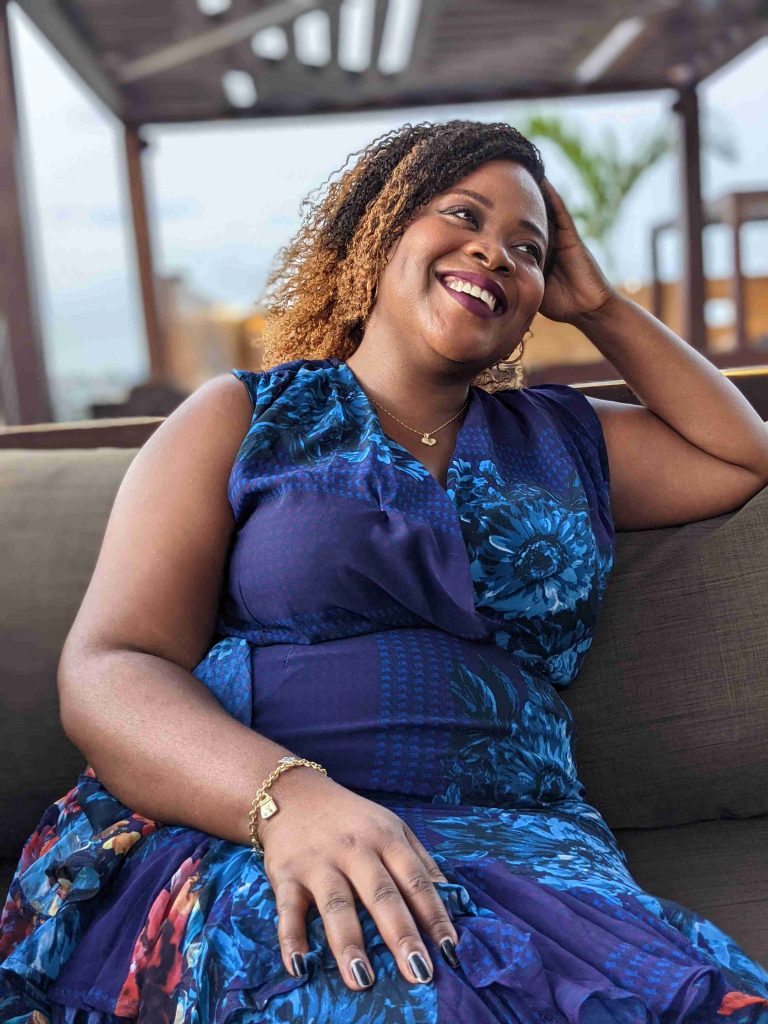
April 2021, I don’t know, does it matter? I am fat. Oreoluwa in a blue floral dress at a date night dinner in Lagos.
Spending a year at home last year during the pandemic gave me some perspective: I barely saw anyone, and so, I was less self-conscious about my weight gain. Additionally, I started to wonder, if the world was on fire, should my size be my main concern? By December 2020, I was certain that I wanted to fully divest from ‘Diet Culture’. At the start of this year, I cancelled all my weight loss goals. I removed them from my New Year’s resolutions list. I did what I had promised to do when I turned 30: quit dieting for good. If after more than 15 years of trying to lose 15 pounds my efforts had not translated to any sustainable success, if after all that time, the opposite effect was all that I had to show for it, why was I still trying?
I decided to try and make peace with being fat, but my health was still a major concern. I decided to start being more open and honest about my feelings about my body and health. Friends who were sympathetic to the struggles I’ve had with my weight and health concerns referred me to nutritionist pages on Instagram, who weren’t promoting diets, but rather a different way of looking at weight and health. A way that didn’t require calorie-counting, scales, or going hungry. I was easing my way into a lifestyle that emphasized self-compassion, intuitiveness, and focusing on what I needed at any given point in time, whether that was food, water, or movement and exercise. I was listening to podcasts and reading books about self-love, self-compassion, the pursuit of mental and physical well-being over aesthetics. I was hoping to find a better way to exist as I am, and I liked what I found.
The ‘Body Positive’ movement online and offline has made re-think some of my views of about fatness, beauty, and the expectations I should have about my size, body, and ageing. Should I exercise to get smaller, or because my heart needs it to function well, and my joints will hurt if I don’t? Should I eat fruit and vegetables in the hopes that I’ll lose weight, or because they promote good digestion and provide essential vitamins and nutrients? How different would my life be if I decentred my weight as an indicator of my quality of life?
If, as a Black woman, I’ve developed the ability to critique what I read listen to and view—being mindful of how racism and sexism translate into human interactions, medicine and the media—why have I never actively engaged with narratives that promote fatphobia or considered the effect of such narratives on my self-esteem, and mental and physical health? What are the qualifiers for love, joy, dignity, and respect, and who decided that being fat excluded you from them? How slim do I have to be to be deserving of a good life? What happens if I’m never slim again? These are simple questions but asking them and sitting with the answers felt radical.
Throughout my life, I have lived in the future and merely endured my present state. In the future, I am finally 15 to 20 pounds lighter and my life is perfect. The future version of me has a great job that pays well, she wears nice clothes that fit, and enjoys healthy meaningful relationships. Future, thinner me travels and takes beautiful Cosmo-esque photos. She enjoys walks in foreign cities, wine with her lunch, and sitting outside to eat. Future me has the handsome, kind and loving lifelong partner she always wanted, and they are building a life together. She can wear the bikinis she likes because her ‘summer body’ is her year-round body. Looking back at how my body has changed over the past 15 years, one thing is clear: no matter how small I was, I was never small enough to be happy. Each time I’ve stopped to look back at previous iterations of my body, I’ve regretted not embracing the body I had at the time. But mostly, I’ve regretted allowing my weight-obsession to overshadow all the other good things I could have been enjoying. Today, I weigh about as much as Superman, one of the strongest men in the DC universe. I am fat. Dictionary.com includes the following definitions of fat:
(Adjective)
having too much flabby tissue; corpulent; obese: a fat person.
plump; well-fed: a good, fat chicken.
Reading the definition made me chuckle. I probably do have too much flabby tissue, but most days I feel like ‘a good, fat chicken’. I am plump. I am well-fed. I am grateful. I have not lost those 15 to 20 pounds. Maybe I never will. In any case, it doesn’t matter, because my weight loss target was a moving one, and I will always be 15 to 20 pounds away from my ideal weight. What my school nurse didn’t tell me at the time was that Black bodies can be heavier due to body composition, bone density or muscle mass, or that health could be measured and tracked in ways beyond my weight. These are things I am discovering now at 31 in my fat body. I still have my ‘Lagos-market-woman arms’. But here’s the thing I’ve grown to know and respect about Lagos market women: they are incredible. They are entrepreneurs. They are breadwinners. They work hard, they own and run businesses, they are key members of their communities, they rally together and mobilize, when necessary, they take care of their families and put their kids through school. Those arms carry baskets, goods, babies, and money. Those arms earn them a living. Those arms shake hands and embrace loved ones, and so do mine.
Back at the wedding dress shop last year, I decided, reluctantly, to try on the fairy princess monstrosity. And it wasn’t as bad as I’d imagined. When I tried the dress on and looked in the mirror, I didn’t see melting chocolate ice cream. I saw a princess, and I embraced the thrill and excitement of that moment. I ended up choosing a dress with the same structure but customized the fabric and design. I didn’t end up losing 15 pounds which was just as well, because when the dress arrived in London, it was already too big and cost a lot to have it adjusted—twice! I chose the princess dress because I realized that I already had all the things I was waiting to be thin enough for, and I didn’t have to lose weight to get them. I got the dress simply because I liked it. On my wedding day, I looked and felt beautiful in my fat Black body and in my princess wedding dress. I embraced what I had and today I look back with joy, nostalgia and delight. Everything I desire is for me, regardless of my weight, and my clothes should be made to fit me⎈
The views, thoughts, and opinions published in The Republic belong solely to the author and are not necessarily the views of The Republic or its editors. We want to hear what you think about this article. Submit a letter to the editors by writing to [email protected].



